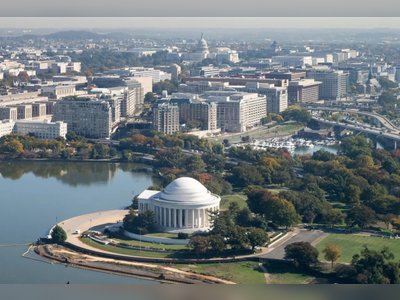Colorado Sues Trump Administration Over Relocation of U.S. Space Command HQ
State Attorney General alleges the move to Alabama was retaliatory and violated federal law
Colorado’s Attorney General, Phil Weiser, filed a lawsuit on Wednesday challenging the Trump administration’s decision to relocate the headquarters of the United States Space Command from Colorado Springs to Huntsville, Alabama.
The legal action argues that the move was unlawful retaliation against Colorado for its mail-in voting system and lacked the required procedural review.
During a September press conference announcing the relocation, President Donald Trump stated that one of the factors was Colorado’s use of mail-in ballots, describing the system as “a big factor” in his decision.
Colorado argues this constitutes punishment of the state for exercising election control reserved to the states under the U.S. Constitution.
The lawsuit claims that relocation criteria were not officially documented, that statutory requirements for public notice and Congressional oversight were circumvented, and that there was no meaningful justification for the decision.
Weiser contended that “the Constitution does not permit the Executive Branch to penalise a state for lawfully exercising powers reserved for it.”
The Trump administration and the White House defended the relocation by citing Huntsville’s military infrastructure, cost-effectiveness and alignment with national security priorities.
A spokeswoman stated the decision places the command “in the best situation to improve readiness and protect our national interests.”
The move reverses a 2023 decision under the previous administration to keep Space Command headquarters in Colorado.
Military and aerospace-industry officials in Colorado warn that the relocation jeopardises readiness and disrupts an established workforce, while Alabama officials praise the decision as a strategic win and economic boon.
The federal suit seeks an injunction to block implementation of the relocation and a declaration that the president’s action is unconstitutional.
Legal experts say the case may hinge on whether political motives were an “improper factor” under the Administrative Procedure Act and whether required basing procedures were followed.
The outcome may influence other federal basing decisions and extend to the broader question of how presidential authorities and state electoral autonomy interact in defence-related infrastructure planning.
The legal action argues that the move was unlawful retaliation against Colorado for its mail-in voting system and lacked the required procedural review.
During a September press conference announcing the relocation, President Donald Trump stated that one of the factors was Colorado’s use of mail-in ballots, describing the system as “a big factor” in his decision.
Colorado argues this constitutes punishment of the state for exercising election control reserved to the states under the U.S. Constitution.
The lawsuit claims that relocation criteria were not officially documented, that statutory requirements for public notice and Congressional oversight were circumvented, and that there was no meaningful justification for the decision.
Weiser contended that “the Constitution does not permit the Executive Branch to penalise a state for lawfully exercising powers reserved for it.”
The Trump administration and the White House defended the relocation by citing Huntsville’s military infrastructure, cost-effectiveness and alignment with national security priorities.
A spokeswoman stated the decision places the command “in the best situation to improve readiness and protect our national interests.”
The move reverses a 2023 decision under the previous administration to keep Space Command headquarters in Colorado.
Military and aerospace-industry officials in Colorado warn that the relocation jeopardises readiness and disrupts an established workforce, while Alabama officials praise the decision as a strategic win and economic boon.
The federal suit seeks an injunction to block implementation of the relocation and a declaration that the president’s action is unconstitutional.
Legal experts say the case may hinge on whether political motives were an “improper factor” under the Administrative Procedure Act and whether required basing procedures were followed.
The outcome may influence other federal basing decisions and extend to the broader question of how presidential authorities and state electoral autonomy interact in defence-related infrastructure planning.











